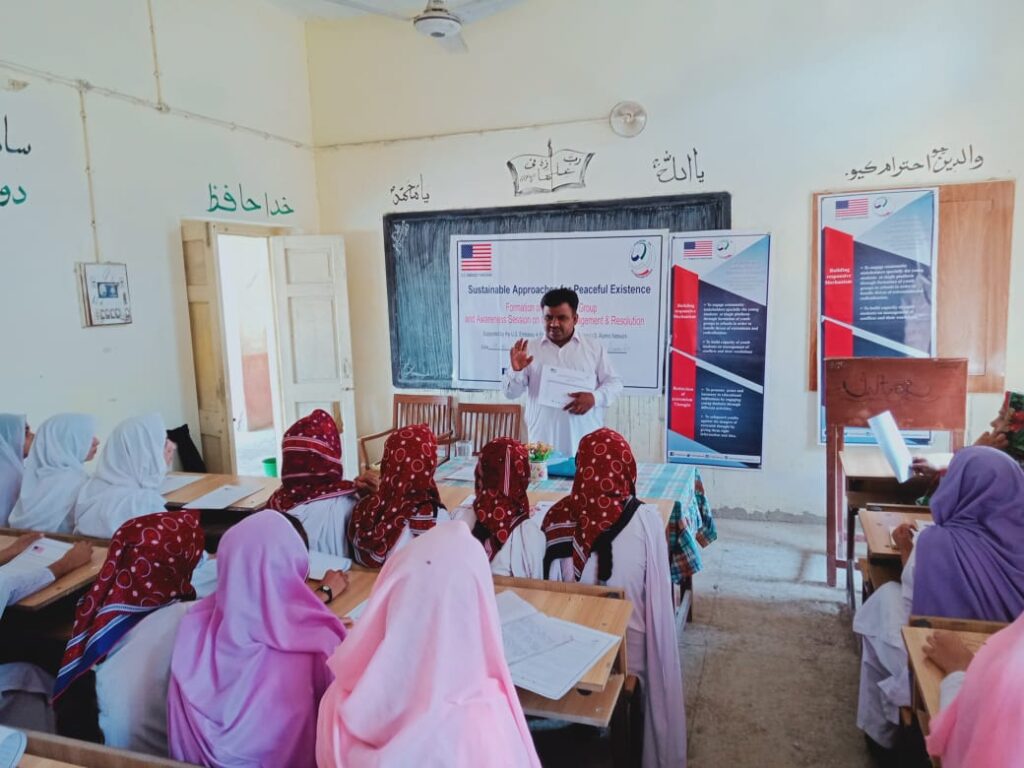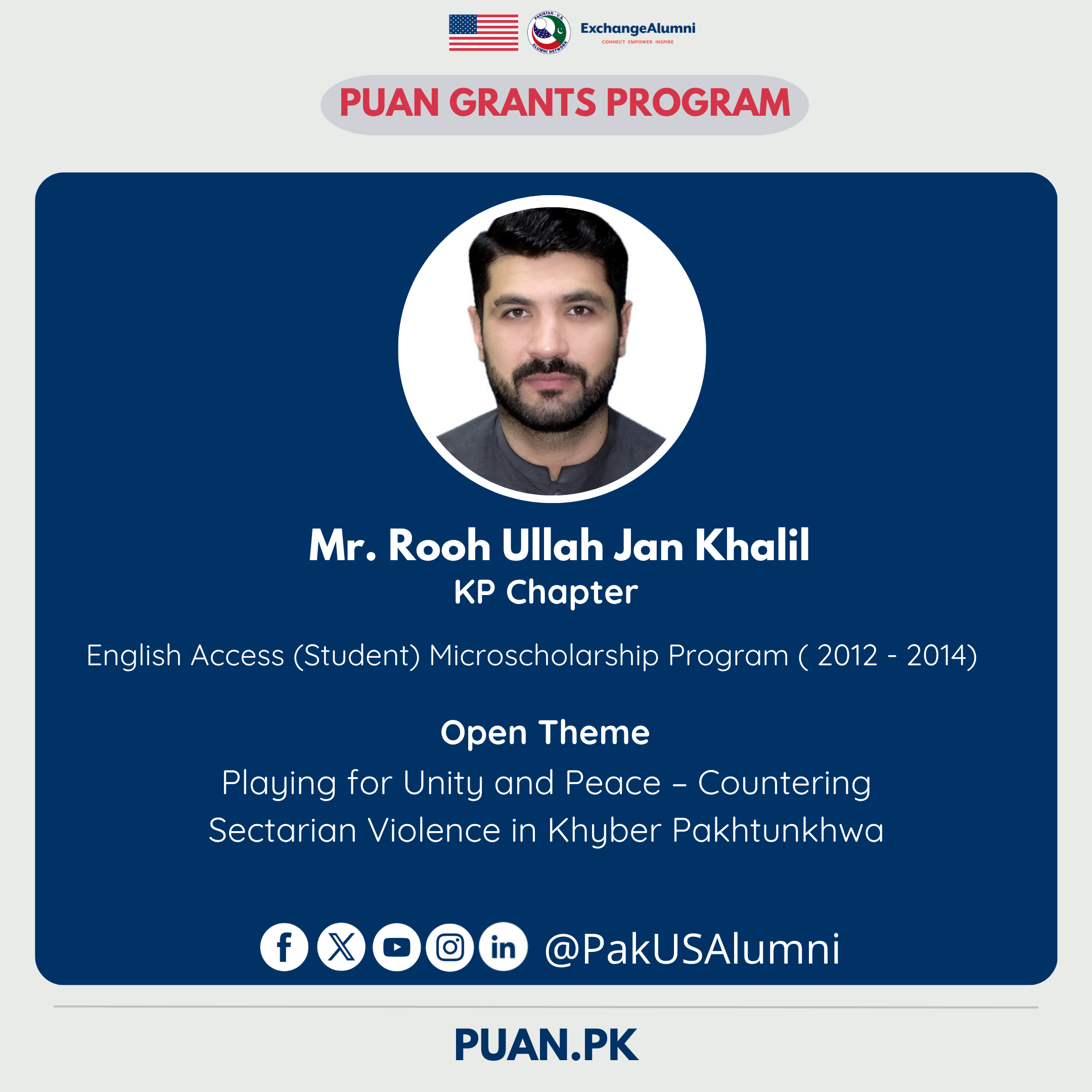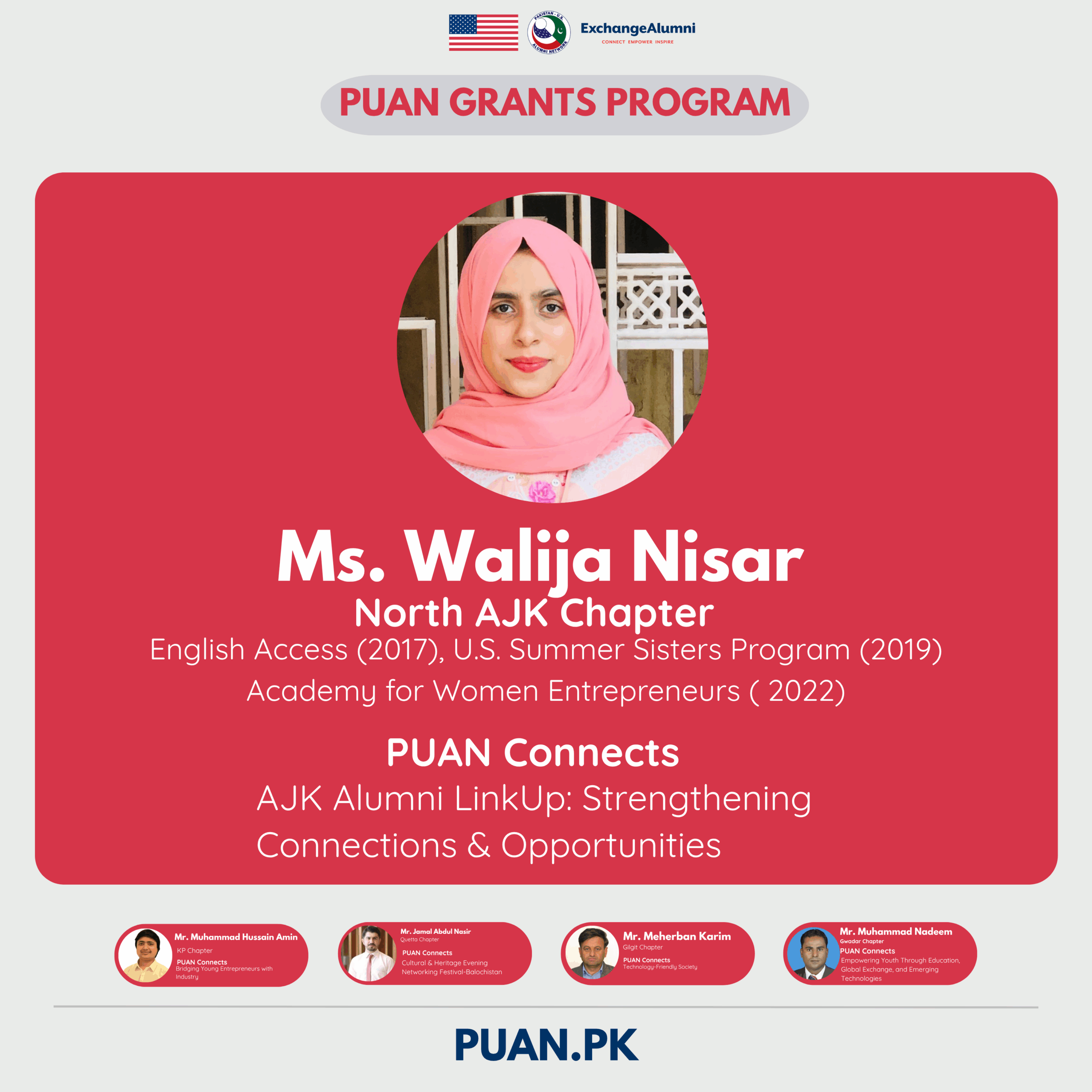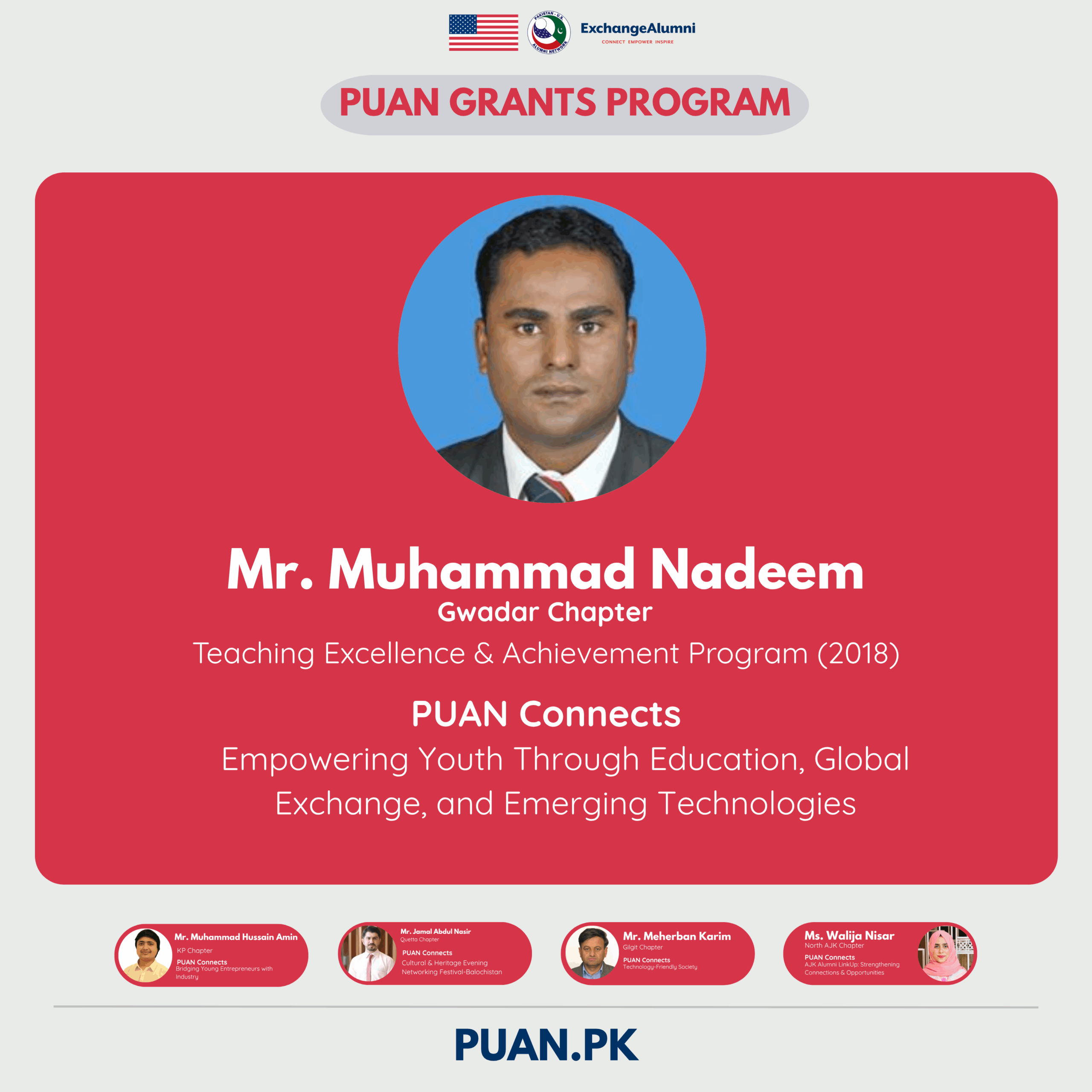Pakistan has come a long way in terms of countering extremism and radicalization. However, ongoing prevention of our people, especially the youth, falling prey to extremist and radical forces requires a focus on development-related causes of and solutions to the phenomenon. Tariq Ali, Pakistan-U.S. Alumni Network’s (PUAN) Teaching Excellence and Achievement Program alumnus, arranged an Annual Small Grant (ASG) project titled ‘Sustainable Approaches for Peaceful Existence’ (SAPE) in Jacobabad aimed at youth in different educational institutions in an attempt to reshape and stimulate idea generation of methods to safeguard themselves against any extremist and potentially harmful activity.
The project had two broad objectives:
- To build responsive mechanisms by engaging community stakeholders, formation of youth groups and, building capacity of youth on conflict management
- To combat extremism by promoting the concept of peace and harmony and providing youth access to the right information

SAPE was implemented in a series of stages. Firstly, six Peace Alert Groups comprising of students, teachers, and PUAN members were formed in secondary and higher secondary schools. Research shows that informal social gatherings and groups of students at schools influence their habits and behaviors. These groups were provided capacity building training’s on conflict management and resolution and are now responsible for disseminating the message of peace to their local communities by conducting activities like peace rallies, lectures, and peace dialogues in and outside their schools.
In the second stage, a series of lectures was initiated in schools through which social activists, academics and religious leaders talked about the importance of promoting peace and harmony from different perspectives. The project team also mobilized faculty of institutions to incorporate lectures based on Peace and Conflict Management & Resolution strategies in their annual academic plan.

In the third stage, an art competition was held in 6 target educational institutions under the theme ‘Mitigation of Extremism and Promotion of Harmony.’ The purpose of this activity was to influence children to introspect and use a soft medium to express their imagination.

Media, in this age, possesses an enormous amount of soft power to influence the masses. Using this medium in a positive way, short documentaries with the message of peace were screened in the target schools.
Fozia Soomro, 16, a student at KG Girls High Schools in Jacobabad also participated in the activities and says:
“It was first time that we, the students, are provided with an opportunity to be united against religious extremism and terrorism. We had not any idea how to handle the threats of extremism. Through the activities of this project, our capacity is now built to such an extent that we can easily handle any untoward situation that may arise in our schools. Sessions on Conflict Management and Resolutions were outstanding.”
Approximately 9,000 students, alongside faculty and community members, benefited from this project, vowing to serve as the ambassadors of peace in their respective institutions and localities.






